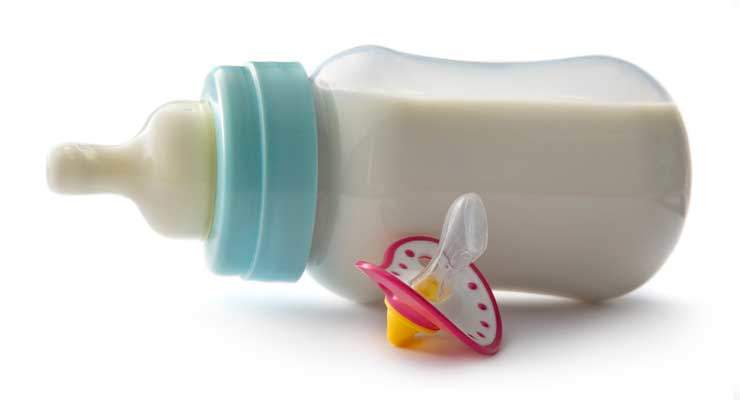How you prepare infant formula can affect your baby’s health. Powdered or liquid concentrate formulas cost less than ready-to-serve formulas, but they require that you add water when mixing. Formula in the powdered form is the least expensive, but you need to follow the instructions on the formula can to know much water to use. What the directions on the can do not tell you is what kind of water should be used in Infant formula.
What Pediatricians Recommend
Talk to your baby’s pediatrician and ask what kind of water you should use when mixing infant formula. The American Academy of Pediatrics (AAP) recommends boiling water to remove impurities and kill germs. While most municipal and public drinking water supplies are required to follow strict regulatory guidelines to be safe, pediatricians generally still suggest using boiled water to mix infant formula, at least for the first three or four months. Since there is no evidence that bottled water is safer than municipal water sources, the AAP says that while parents can use bottled water to mix formula, the water still needs to be boiled first. You can also use distilled water that has already been purified or ready-to-use formulas, which do not need mixing with water.
Boiling Water
The U.S Food and Drug Administration (FDA) recommends bringing water to a full rolling boil and then continuing for at least another two minutes. If you live at a higher altitude, you may have to boil water for several minutes longer. Water must reach a temperature of 100°C to kill harmful organisms. However, boiling the same water more than once or for too long increases the concentration of minerals in the water. Always boil water in a clean pan and allow it to cool to room temperature before mixing it with formula. Do not cool water by adding cold water that has not been sterilized.
Safe Water Sources
Use only cold water if you take water right out of the tap. Let the water run for two or three minutes to reduce the amount of lead, copper or other any contaminants. This is particularly important if you live in a house that has old water pipes. Cold water is safer, as hot water normally contains higher levels of lead. If your water comes from a well, boil it for at least 10 minutes or use distilled water until your baby is six months old. Well water often has high mineral levels of sodium, nitrates, and other heavy metals. According to literature published by the National Academy of Sciences (NAS), boiling well water concentrates the nitrates, which babies cannot absorb and excrete. An infant’s digestive system is not yet fully developed, high levels of nitrates in the body can cause nitrate poisoning, which must be treated immediately.
Cautions
Do not use mineral, soda or other carbonated waters to mix infant formula. These can be dangerous to your baby as they are usually high in sodium and may contain bacteria. Water that passes through a water softening system should not be used either, as it most likely contains high levels of salt. Filtered water may have fewer impurities and contaminants, but it can still have harmful bacteria. Be sure to check labels, as bottled water must meet the FDA’s standard of water quality, which is similar to the Environmental Protection Agency’s (EPA) standards for tap water. You can purchase sterile nursery water, which is more expensive than other bottled waters. You should probably save your money, as the water is basically of the same quality as other forms of purified water.
Formula Preparation
Follow the directions for mixing formula exactly. Adding too much water will dilute the formula and your baby will not get enough calories and nutrients. Too much water in the formula can also cause a baby’s sodium levels to drop, which could eventually cause swelling in the brain and trigger a seizure. Regularly diluting infant formula increases this risk, as a baby’s sodium level will remain low. Not adding enough water when mixing powder formula can do the reverse, causing an infant’s sodium levels to rise. This is a potential health hazard that can also trigger seizures and even coma.
Fluorosis
According to the American Dental Association, babies younger than one-year-old need less fluoride. Infant formula can be mixed with water that is either fluoride free or contains low levels of fluoride. If you regularly mix your baby’s formula with fluoridated tap water, your child could get dental fluorosis. Fluorosis is a condition caused by getting too much fluoride when teeth are first developing. While fluoride prevents tooth decay, too much fluoride can cause stains on your child’s teeth. Parents of infants need to be particularly careful, boiling water with fluoride concentrates the fluoride.
Signs of fluorosis include staining of tooth enamel or white streaks on the teeth. These may appear first on baby teeth, and then later on a child’s permanent teeth. Levels of fluoride vary among municipalities, talk to your dentist or local water company if you have questions about fluoride in the water. If you only use fluoridated tap water occasionally to mix infant formula, you don’t have to worry. Your child should not be at risk for fluorosis. Bottled water is usually low in fluoride, but check the label in any case.
What Kind of Water Should be Used in Infant Formula?






